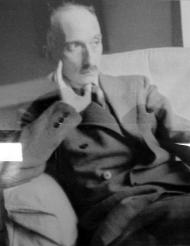This article is about the 1927 film. For other uses, see The Jazz Singer (disambiguation).
The Jazz Singer is a 1927 American musical film. The first feature-length motion picture with synchronized dialogue sequences, its release heralded the commercial ascendance of the "talkies" and the decline of the silent film era. Directed by Alan Crosland and produced by Warner Bros. with its Vitaphone sound-on-disc system, the movie stars Al Jolson, who performs six songs. The film is based on
The Day of Atonement, a play by Samson Raphaelson.
The film depicts the fictional story of Jakie Rabinowitz, a young man who defies the traditions of his devout Jewish family. After singing popular tunes in a beer garden he is punished by his father, a cantor, prompting Jakie to run away from home. Some years later, now calling himself Jack Robin, he has become a talented jazz singer. He attempts to build a career as an entertainer but his professional ambitions ultimately come into conflict with the demands of his home and heritage.
Darryl F. Zanuck won the Special Academy Award for producing the film, and it was also nominated for Best Adapted Screenplay and Best Engineering Effects. In 1996, The Jazz Singer was selected for preservation in the U.S. Library of Congress's National Film Registry of "culturally, historically or aesthetically significant" motion pictures. In 1998, the film was chosen in voting conducted by the American Film Institute as one of the best American films of all time, ranking at number ninety.
Introducing sound
While many earlier sound films had dialogue, all were short subjects. D. W. Griffith's feature Dream Street (1921) was shown in New York with a single singing sequence and crowd noises. It was preceded by a program of sound shorts, including a sequence with Griffith speaking directly to the audience, but the feature itself had no talking scenes. Similarly, the first Warner Bros. Vitaphone features, Don Juan (premiered August 1926) and The Better 'Ole (premiered October 1926), like two more that followed in early 1927, had only a synchronized instrumental score and sound effects. The Jazz Singer contains those, as well as numerous synchronized singing sequences and some synchronized speech: Two popular tunes are performed by the young Jakie Rabinowitz, the future Jazz Singer; his father, a cantor, performs the devotional Kol Nidre; the famous cantor Yossele Rosenblatt, appearing as himself, sings another religious melody, Kaddish. As the adult Jack Robin, Jolson performs six songs, five popular "jazz" tunes and the Kol Nidre. The sound for the film was recorded by British-born George Groves, who had also worked on Don Juan. To direct, the studio chose Alan Crosland, who already had two Vitaphone films to his credit: Don Juan and Old San Francisco, which opened while The Jazz Singer was in production.
Jolson's first vocal performance, about fifteen minutes into the picture, is of "Dirty Hands, Dirty Face," with music by James V. Monaco and lyrics by Edgar Leslie and Grant Clarke. The first synchronized speech, uttered by Jack to a cabaret crowd and to the piano player in the band that accompanies him, occurs directly after that performance, beginning at the 17:25 mark of the film. Jack's first spoken words—"Wait a minute, wait a minute, you ain't heard nothin' yet"—were well-established stage patter of Jolson's. He had even spoken very similar lines in a 1926 short, Al Jolson in "A Plantation Act." The line had developed as something of an in-joke. In November 1918, during a gala concert celebrating the end of World War I, Jolson ran onstage amid the applause for the preceding performer, the great operatic tenor Enrico Caruso, and exclaimed, "Folks, you ain't heard nothin' yet." The following year, he recorded the song "You Ain't Heard Nothin' Yet". In a later scene, Jack talks with his mother, played by Eugenie Besserer, in the family parlor; his father enters and pronounces one very conclusive word.
In total, the movie contains barely two minutes worth of synchronized talking, much or all of it improvised. The rest of the dialogue is presented through the caption cards, or intertitles, standard in silent movies of the era; as was common, those titles were composed not by the film's scenarist, Alfred Cohn, but by another writer — in this case, Jack Jarmuth.
While Jolson was touring with a stage show during June 1927, production on The Jazz Singer began with the shooting of exterior scenes by the second unit. In late June, Alan Crosland headed to New York City to shoot the Lower East Side and Winter Garden exteriors on location. Jolson joined the production in mid-July (his contract specified July 11). Filming with Jolson began with his silent scenes; the more complex Vitaphone sequences were primarily done in late August. Both Jolson and Zanuck would later take credit for thinking up the ad-libbed dialogue sequence between Jack and his mother; another story had it that Sam Warner was impressed by Jolson's brief ad-libbing in the cabaret scene and had Cohn come up with some lines on the spot. On September 23, Motion Picture News reported that production on the film had been completed.
The production cost for The Jazz Singer was $422,000 (approximately US$4.7 million in 2005 dollars)—a large sum, especially for Warner Bros., which rarely spent more than $250,000. It was by no means a record for the studio, however; two features starring John Barrymore had been costlier: The Sea Beast (1926), a loose and entirely silent adaptation of Moby-Dick, at $503,000 and Don Juan at $546,000. Nonetheless, the outlay constituted a major gamble in light of the studio's financial straits: while The Jazz Singer was in production, Harry Warner stopped taking a salary, pawned jewelry belonging to his wife, and moved his family into a smaller apartment.

